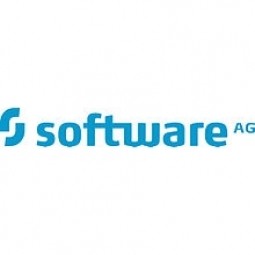下载PDF
Oriflame’s IT Innovates Business Through Effective Alignment
技术
- 应用基础设施与中间件 - API 集成与管理
- 应用基础设施与中间件 - 数据交换与集成
适用行业
- 消费品
适用功能
- 销售与市场营销
- 商业运营
用例
- 供应链可见性(SCV)
- 库存管理
服务
- 系统集成
挑战
Oriflame, a beauty company selling direct in more than 60 countries, faced several challenges. The company's average annual growth of 11 percent over the past 20 years and expansion into more than 40 countries brought many business challenges. This naturally created challenges for Oriflame’s Global Shared Services IT Group as well: to incorporate new markets, adapt requirements and manage disparate business needs. In Oriflame, the one business constant is clearly change. The primary business applications were consistent across Oriflame: the in-house sales application (Orisales), JDA® Platform for supply chain management and IFS Applications™ for ERP. However, the alignment issues were at a more fundamental level.
关于客户
Oriflame is a beauty company that was founded in 1967. The company sells its products directly in more than 60 countries. Its wide portfolio of Swedish, nature-inspired, innovative beauty products is marketed through approximately 3 million independent Oriflame Consultants, generating annual sales of around €1.5 billion. Respect for people and nature underlies Oriflame’s operating principles and is reflected in its social and environmental policies. Oriflame is a Luxembourg company group with corporate offices in Luxembourg and Switzerland. The company offers a diverse product range of close to 1,000 cosmetics and toiletries at affordable prices. The leader in more than half its markets, Oriflame’s vision is to be the number one direct selling beauty company.
解决方案
To increase their flexibility and readiness to adapt for future business demands, Oriflame had to better align their Enterprise Architecture (EA) and platforms, and also standardize their solution integrations enterprise-wide. This would enable IT to exchange partners more easily, deploy solutions quicker, employ shared services to facilitate optimizations and support local customizations without compromising enterprise-level IT control. As the basis for the alignment, the Global IT Group opted to use a Service-Oriented Architecture (SOA) approach. Now, supported by Software AG’s webMethods platform, Oriflame can quickly add new logistic partners and banks. The on-boarding process no longer requires IFS customizations, which also saves a significant amount of money and effort.
运营影响
数量效益
相关案例.
.png)
Case Study
Improving Vending Machine Profitability with the Internet of Things (IoT)
The vending industry is undergoing a sea change, taking advantage of new technologies to go beyond just delivering snacks to creating a new retail location. Intelligent vending machines can be found in many public locations as well as company facilities, selling different types of goods and services, including even computer accessories, gold bars, tickets, and office supplies. With increasing sophistication, they may also provide time- and location-based data pertaining to sales, inventory, and customer preferences. But at the end of the day, vending machine operators know greater profitability is driven by higher sales and lower operating costs.

Case Study
Series Production with Lot-size-1 Flexibility
Nobilia manufactures customized fitted kitchens with a lot size of 1. They require maximum transparency of tracking design data and individual processing steps so that they can locate a particular piece of kitchen furniture in the sequence of processes.

Case Study
American Eagle Achieves LEED with GE LED Lighting Fixtures
American Eagle Outfitters (AEO) was in the process of building a new distribution center. The AEO facility management team decided to look at alternate options for lighting layout that could provide energy and maintenance savings. AEO would need a full-time maintenance employee just to replace burned-out fluorescent tubes.

Case Study
Revolutionizing Rodent Control
From pet- and child-safe traps, to touch-free and live-catch rodent control solutions, Victor continues to stay committed to producing superior products that meet the varying needs of today’s pest control professionals. And, with a long standing history supporting customers in the food processing, service, and retail settings, Victor knew that strict regulations were costing organizations thousands of dollars in excess overhead trying to manage their rodent-control solutions. Trap inspections in these environments are often difficult and time consuming, requiring personnel to manually check a trap’s status multiple times per day, amounting to over six hours of manual labor. Victor is looking for an innovative way to increase operational efficiencies with the use of technology.







